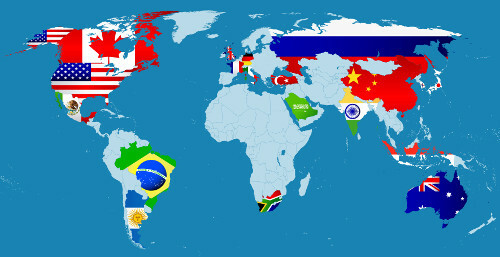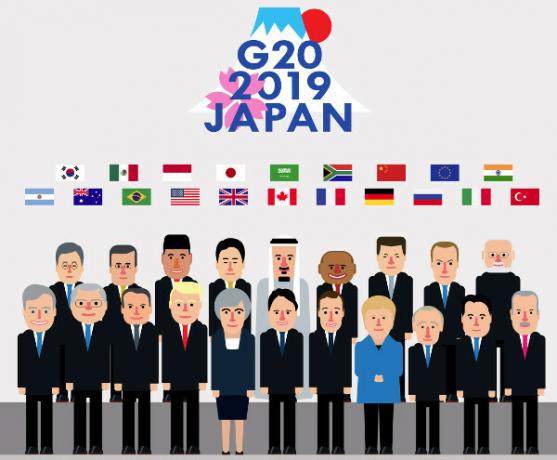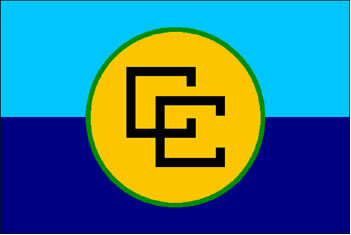The Group of 20 (G20), also called the Financial G20, was created in 1999 in response to successive financial crises experienced by some economic powers, especially in Asia, at the end of the decade of 90. The group's objective is to strengthen international negotiations between member countries and provide global economic stability.
The G20 is made up of the 19 largest economies in the world, represented by finance ministers and heads of central banks, plus the European Union, represented by the European Central Bank and the rotating presidency of the European Council.
The eight richest and most influential countries in the world are part of the G20, the G8, and 11 emerging countries.
G8: Germany, Canada, United States, France, Italy, Japan, United Kingdom and Russia.
Emerging countries: South Africa, Saudi Arabia, Argentina, Australia, Brazil, China, South Korea, India, Indonesia, Mexico and Turkey.

G20 member countries represent 80% of the global economy, are home to 64% of the world's population and account for more than 90% of research and development spending in the world. In addition, the meeting of the 19 countries represents 85% of the
Gross Domestic Product (GDP) worldwide.Summit Meetings
Since 2008, representatives from member countries have met annually¹ for the G20 Summit. Generally, the heads of state themselves (presidents and prime ministers) attend the meetings, but it is common the presence of only the presidents of the Central Banks or the Treasury of each country.
In 2019, the 14th G20 Summit Meeting took place on June 28 and 29, in Osaka, Japan. The main agendas were economic freedom and economic protectionism applied by the United States and China in recent years, the concern with issues related to the climate and the Paris Agreement, in addition to conflicts between some countries, such as the United States and Iran.

Credit: Serg Verbenko / Shutterstock.com
In 2020, the 15th G20 Summit Meeting will be held in Riyadh, Saudi Arabia, on November 21st and 22nd. The next ones will be in Italy (2021), India (2022) and Brazil (2023).
Do not stop now... There's more after the advertising ;)
G20 Challenges
In recent years, economic analysts around the world have been discussing the relevance of the G20 meetings. Created with the intention of defining the direction of the world economy, the G20 has had little influence on the financial markets. According to research published by the European Central Bank in 2014, “the effects of the G20 meetings are small, short-lived, not systematic and not robust”.
The same study shows that the meetings of the G8, the Central Bank of the United States and the European Union have a much greater impact on stock exchanges. For this reason, some countries, especially those considered emerging, with the exception of China, see the G20 meeting as a protocol commitment. At the same time, influential countries take advantage of the meeting of leaders to make bilateral agreements.
Another challenge for the G20 is to promote integration and synergy among member countries, overcoming individual interests. Currently, there is a trend of "deglobalization", evidenced by the Brexit and the protectionist nationalism of Donald Trump.
G20 Development
In 2003, another group was created, which was also called the G20, but with a focus on agricultural development. O G20 Developing Countries was created for the preparation of projects for agricultural economic activity, the main theme of the Doha Development Agenda.
The G20 Development currently has 23 member countries: five countries from Africa (South Africa, Egypt, Nigeria, Tanzania and Zimbabwe), six from Asia (China, Philippines, India, Indonesia, Pakistan and Thailand) and 12 from Latin America (Argentina, Bolivia, Brazil, Chile, Cuba, Ecuador, Guatemala, Mexico, Paraguay, Peru, Uruguay and Venezuela).
¹In 2009 and 2010, there were two summit meetings per year.
by Adriano Lesme


